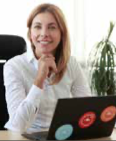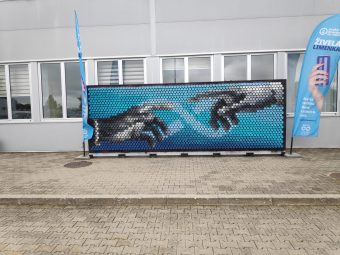
Every day in the market we see new products being made with only one goal, which is to make our lives easier. Only a few of us would ask how much does manufacturing such new things (that are more or less needed or completely unneeded) affect the environment, and it is almost certain that the majority of them, by the end of their lifetime, is to end up in landfills.
Recycling is a process involving the collection and processing of materials that would otherwise wind up at landfills, with the goal of transforming them into new products. When we recycle, we reduce using natural resources, protect natural plant and animal habitats, decrease water pollution, save energy, shrink carbon emissions and the amount of waste in landfills. And while some materials are rarely or hardly ever recycled, some can be recycled innumerable times. Aluminum is one of the metals that can be recycled innumerable times.
In that process, aluminum does not lose any of its features, nor is its metal structure being destroyed. Recycled aluminum is in no way different than the original, and, interestingly, one in two supermarket cans are recycled at least once and come from Ball Packaging Europe’s factories. In our conversation with Jelena Kiš, Sustainability and Regulatory Affairs Manager for Central and Eastern Europe at Ball Packaging Europe corporation, we have had the chance to talk about her company, recycling, environmental protection, and their plans for the future.
EP: How long has it been since your company had started working on creating a cleaner environment in Serbia?
Jelena Kiš: Ball is present in Serbia for more than 16 years now and from day one we have been continuously working on contributing to our economic growth and environmental protection. Economically speaking, I would like to highlight that more than 250 of our workers produce around 1.5 billion cans a year, 80 percent of which is made for exports into more than 20 global markets. We are extremely proud of the fact that Belgrade has become the operational center for the entire Ball EMEA global business (GBS) team. Product development, technology, and people, above all, are at the core of our plans, along with long-term priorities such as dedication to sustainability in all business segments.
In focus:
The Recan Foundation – a non-profit recycling organization – was founded in 2005. The Foundation supported “Every Can Matters”, an international partnership program between can and beverage manufacturers, the recycling industry, and environmental organizations. There are already 1,000 locations in the system, thanks to the Foundation’s activities and constant regional campaigns. After collecting the cans, right before their recycling, they are being transformed into an authentic work of art – the Pixelata. It is a mural made up of used cans the creatives play with and mix and match in order to create a real visual. For years now, in different music festivals and other events in Serbia and the region, the Pixelata has held its special place and, together with the Foundation, it serves to raise awareness on the importance of recycling, especially in the youth. This is our priority, and it is what we are going to work hard on and devotedly in the future as well.

EP: When it comes to your company, is there room for improvement in this area in Serbia?
Jelena Kiš: As one of the biggest global manufacturers of “packaging of the future”, we are aware of the responsibility we have and we have accepted at the highest possible level. Together with interest groups across the industry, we are undertaking several activities in order to introduce solutions for the climate crisis and develop and promote the best methods, policies, and procedures for establishing a completely circulatory system of aluminum beverage packaging.
We have published a vision for our industry titled “Towards the Perfect Circle”, defining how, if we work together, we can top the 90 percent recycling rate of the most recycled beverage packaging in the world – the aluminum cans, bottles, and glasses – in comparison to current 69percent, and increase the global average of recycled materials up to a whopping 85 percent.
Consumers around Europe and the world seek ever more truly sustainable packaging that can be endlessly recycled, again and again, highlighting they would be ready to pay more for it due to the positive ecological impact. In Serbia, up to 74 percent of interviewees said they would like to do more in terms of recycling, which is not surprising because the first metals were melted in this very area. This was done in Vinča, a world-famous archeological site, situated in Belo Brdo town, with the remains dating from 5300 to 4600 BC. In this area, the seed of the industrial revolution was sewn and the first molecules melted in Vinča are still circulating today, considering the frequency of their recycling throughout history.
EP: Environmental protection is one of the most important segments at Bell. What steps are you taking in this area in particular?
Jelena Kiš: Taking care of our environment is the focus of our business, and we wish to transpose this to our consumers as well. They are our biggest allies in making our vision come true, so they rightfully expect us and our industry partners to provide a more sustainable future for them. They want to see their favorite beverages in packaging that will not harm the environment they live in. That is why we keep educating the market about the importance and advantages of tin cans, as is the case with “Metal Recycles Forever” marking on all our products. In comparison to 1980, when the first soft drink can was made, its weight today is 45 percent lower and is made of one material that can be endlessly recycled without obstructing its quality. There is always room for improvement and our road to the circular economy is clearly defined.
Interviewed by: Milica Radičević
Read the story in the new issue of the Energy portal Magazine RECYCLING.
Translator Vesna Savić

